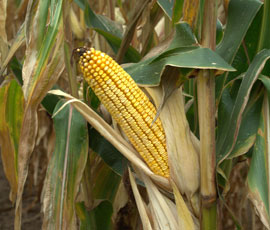Russia lifts ban on Monsanto GM maize

Russia has lifted a temporary ban on the import of Monsanto’s genetically modified glyphosate-tolerant maize NK603.
The ban was put in place in September after a French study linked Monsanto’s weedkiller Roundup and NK603 to cancer in rats.
The European Food Safety Agency (EFSA) later rejected the findings, saying there was no specific scientific evidence that the products were a risk to human and animal health or the environment.
This week the Federal Service for Supervision of Consumer Rights Protection and Human Welfare (Rospotrebnadzor) reported that Russia had carried out a safety assessment of NK603.
Tests concluded that no adverse effects were found on human health over the use of the product.
In 2011, Russia spent £350m on imported feed and fodder, including maize and soya, on which it relies for animal feed.
Currently, GM maize NK603 is registered for use in the diet of 17 countries including the US, China, Brazil, Japan, Argentina, Canada, and parts of the European Union.
Meanwhile Poland has announced a ban on the cultivation of two GM crops – Monsanto’s MON810 GM maize and BASF’s Amflora potato.
Farmers are banned from growing GM crops for commercial use there. However, a handful of small-scale field trials of GM crops are under way in the UK, including a trial of aphid-resistant GM wheat at Rothamsted Research.
DEFRA secretary Owen Paterson told delegates at the Oxford Farming Conference this week that British farmers should make the case to the public about the potential benefits of GM crops.
VIDEO: UK farmers must make the case for GMs
